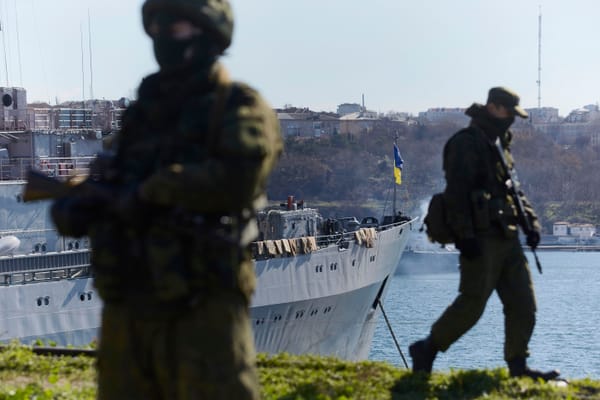The day I hired a retired Soviet Navy whale was the day I grasped just how destitute Ukraine was. I was on holiday on the Crimean coast near Foros, within sight of Mikhail Gorbachev’s summer palace on the sea. A year before, this same place had been under the hard thumb of the Kremlin state, a grim and often brutal apparatus that I had expected to last forever, or at least for my lifetime. It had also been part of the Soviet economy, a tottering structure but still more solid than what was to follow. All that crumbled when the Soviet leader was kidnapped by the KGB in a failed putsch. That putsch had blown up in its instigators’ faces and so brought down the entire Leninist empire in a matter of weeks.
Now, in the summer of 1992, everything in the former USSR was for sale or rent, from trips into space to military hardware to the whole economy. And in Ukraine, it was much worse than in Russia, where it was pretty bad. I once found an abandoned Red Army rocket launcher parked on a street not far from my Moscow apartment, forlorn in the drizzle. It was just there. Nobody cared. The tires were flat and people had begun to paint slogans on it. Presumably its crew had just dumped it and decamped. If this could happen in the capital city, what was going on in the vast, rusting provinces? Russia’s government had simply acquiesced as Ukraine, an enormous slice of strategic territory, had slipped from its grasp. The whole event was utterly unexpected, inside or outside Soviet territory. The United States and NATO had not wanted or foreseen it and were puzzled about who would now be in control. As in a dream, the Soviet giant found he had no power over his own limbs and had to watch as he was mocked and stripped. People who had never really expected to have national sovereignty and self-determination suddenly possessed these things—and had little idea what to do with them.
“Crimea was Russian. Sevastopol was the pride of Russia’s fleet.”
Yet the process was almost wholly peaceful. Britain often boasts, unjustifiably, about how calm the dissolution of its empire was, forgetting the massacres at the partition of India and the hard, bitter, bloodstained departures from Ireland, Kenya, Cyprus, and Palestine. Russia actually has much more reason to brag in this way. There were a few shocking, concentrated episodes, especially in Lithuania, Latvia, and Georgia. I was present at the very nasty Lithuanian events in January 1991 and was amazed and relieved by how quickly they were over. There was no long goodbye. Resistance to the end of empire flared and died, with Boris Yeltsin complaining and then abruptly shutting up. In general, the whole gigantic thing simply folded its tents and stole away in the night, as if it didn’t really care. The truth was, it could no longer afford to care, just as Britain became too poor to be a world power after 1945.
